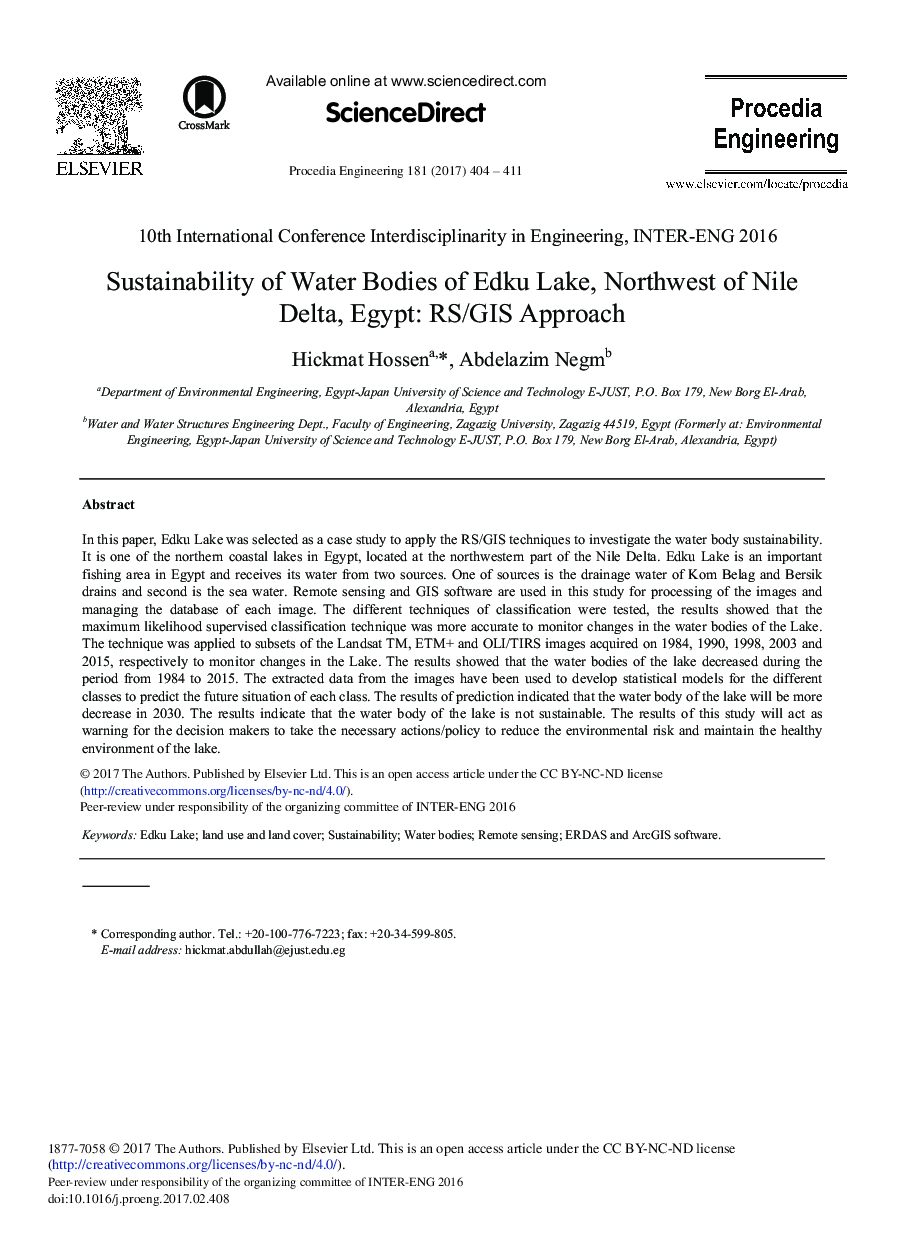| Article ID | Journal | Published Year | Pages | File Type |
|---|---|---|---|---|
| 5028859 | Procedia Engineering | 2017 | 8 Pages |
In this paper, Edku Lake was selected as a case study to apply the RS/GIS techniques to investigate the water body sustainability. It is one of the northern coastal lakes in Egypt, located at the northwestern part of the Nile Delta. Edku Lake is an important fishing area in Egypt and receives its water from two sources. One of sources is the drainage water of Kom Belag and Bersik drains and second is the sea water. Remote sensing and GIS software are used in this study for processing of the images and managing the database of each image. The different techniques of classification were tested, the results showed that the maximum likelihood supervised classification technique was more accurate to monitor changes in the water bodies of the Lake. The technique was applied to subsets of the Landsat TM, ETM+ and OLI/TIRS images acquired on 1984, 1990, 1998, 2003 and 2015, respectively to monitor changes in the Lake. The results showed that the water bodies of the lake decreased during the period from 1984 to 2015. The extracted data from the images have been used to develop statistical models for the different classes to predict the future situation of each class. The results of prediction indicated that the water body of the lake will be more decrease in 2030. The results indicate that the water body of the lake is not sustainable. The results of this study will act as warning for the decision makers to take the necessary actions/policy to reduce the environmental risk and maintain the healthy environment of the lake.
